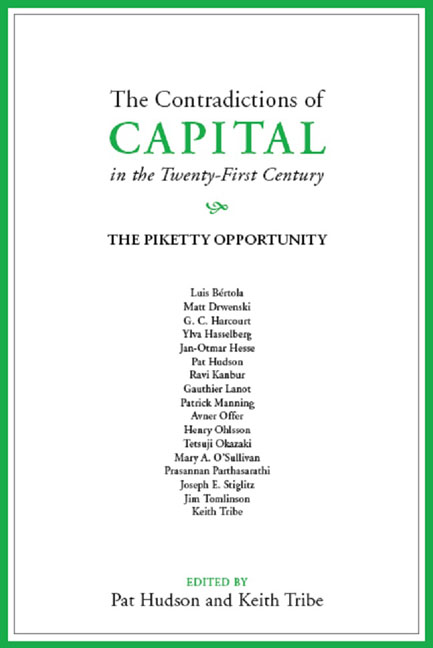14 - Goals and Measures of Development: the Piketty Opportunity
Published online by Cambridge University Press: 16 August 2023
Summary
The imperfect lessons that we can draw from history … are of inestimable, irreplaceable value, and no controlled experiment will ever be able to equal them.
Thomas Piketty has put long-run shifts in inequality, and their importance, back at the centre of economics. By addressing changes in income and wealth distribution over more than two centuries and across several parts of the globe, he has also given an important new impetus to the study of economic history. The first part of this chapter provides a commentary on Piketty’s major achievement, seeking to draw out some of the implications of arguments made in the earlier chapters of this book. More importantly, a critical approach to Piketty’s research and thesis is a necessary prelude to exploring the ways in which his work opens up new areas of debate for economists, economic historians and social scientists in general. In the second part of the chapter, we consider the “Piketty opportunity”: a chance to question and to rethink some long-established and entrenched approaches, measures, assumptions and methods of economic history and economics. Comparative measures of the success or failure of economies, growth theory, definitions and measures of capital and wealth, technological innovation, ideas about convergence and divergence, and the central importance of politics and ideology in economic change can all be placed in the spotlight created by Piketty, with salutary implications.
PIKETTY’S ACHIEVEMENT: A COMMENTARY
Inequality: elements and trajectory
Piketty forces us to put the meaning and measurement of inequality, as well as its trajectory, at centre stage when discussing the economic history of advanced economies over the past two centuries. In considering his achievement, one must be clear about the components of primary income and wealth inequalities. They comprise a flow (income) and a stock (wealth), although the latter might largely be seen as the result of historical and intergenerational income flows, hence the importance given to the former. But wealth differentials are generally higher than differentials in income, and this seems to have been increasingly the case in leading economies since the 1980s or so (as it was for sure in most economies of the nineteenth century and earlier).
- Type
- Chapter
- Information
- The Contradictions of Capital in the Twenty-First CenturyThe Piketty Opportunity, pp. 249 - 282Publisher: Agenda PublishingPrint publication year: 2016



